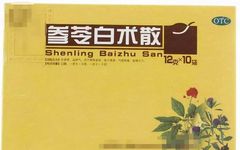Nowadays, people often talk about dampness and the need to dispel it, describing symptoms such as body heaviness, fatigue, obesity, abdominal distension, and sticky stools. Coix seed (Yi Yi Ren) is a commonly used herb that strengthens the spleen, dispels dampness, and can be used both medicinally and as food.Coix seed is also known as Job’s tears, coix, or yi mi, and is often used in folk remedies to make porridge, soups, and stews.Clinically, coix seed is widely used for spleen deficiency with excess dampness leading to edema, diarrhea, urinary tract infections (dysuria), joint numbness and pain (bi syndrome), and purulent infections of the lungs and intestines (lung abscess, intestinal abscess).
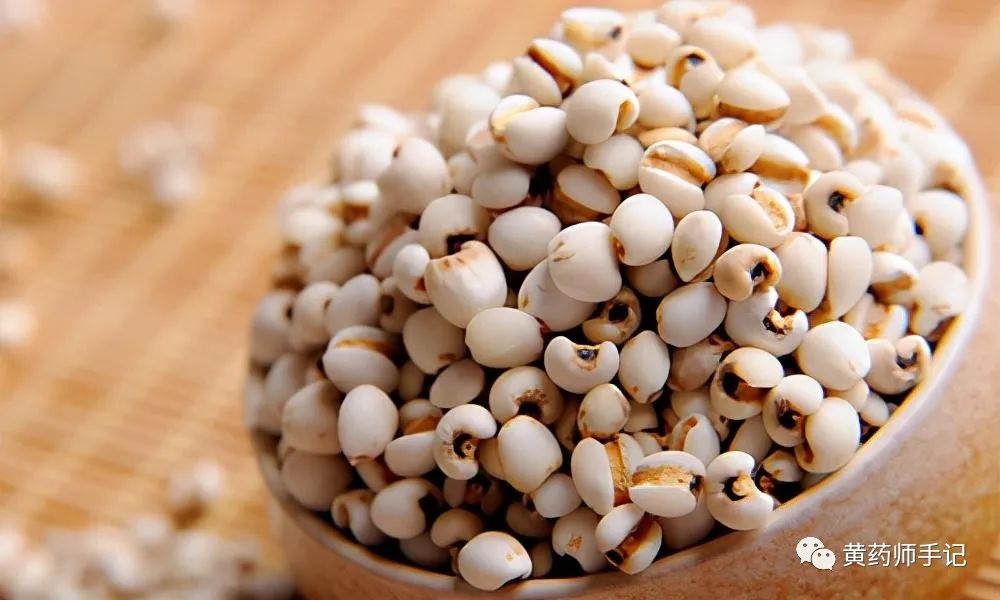
Coix seed
Today, Master Huang will discuss the wonderful uses of coix seed.
1. Traditional Effects and Applications
1. Edema and Urinary DifficultiesSpleen deficiency with excess dampness often leads to edema and urinary difficulties. Coix seed can be combined with Huang Qi (Astragalus), Bai Zhu (Atractylodes), and Fu Ling (Poria) to enhance its effects of strengthening the spleen, promoting urination, and reducing swelling.For example, Shen Ling Bai Zhu San is often thought to only tonify spleen and lung qi, used for symptoms like loss of appetite, loose stools, and shortness of breath with cough due to spleen and lung deficiency. However, because it contains Fu Ling and Coix seed, it also has a certain effect of tonifying the spleen and promoting urination.
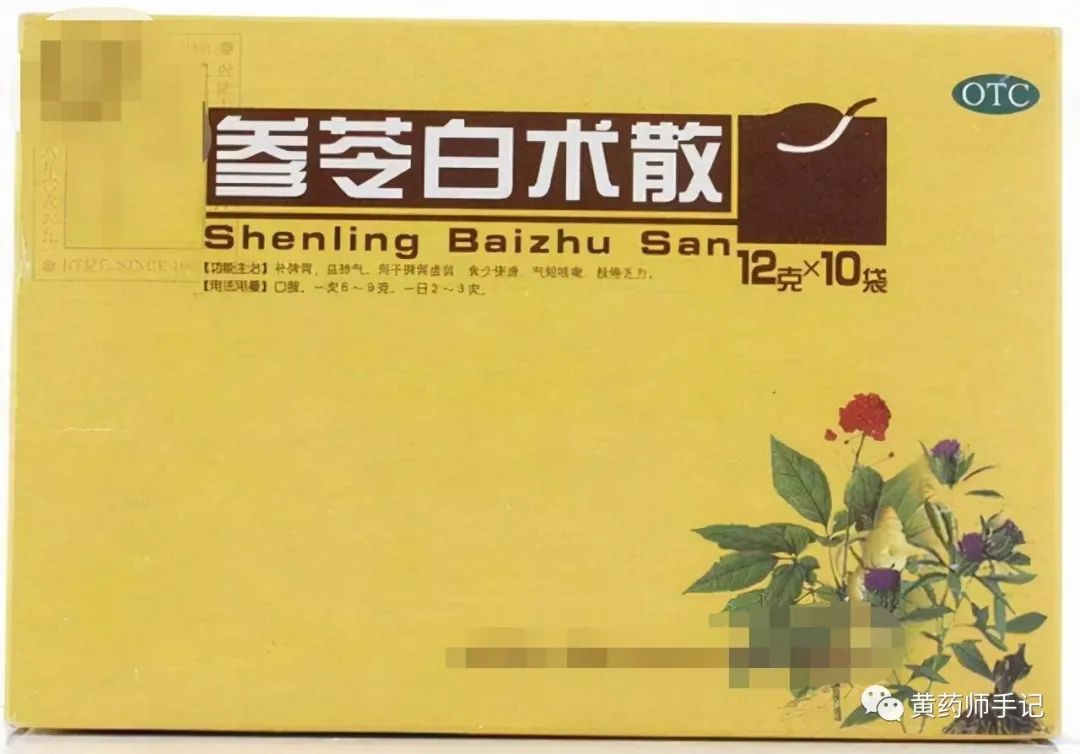
The image is for reference only; please use proprietary Chinese medicine under the guidance of a physician.If edema is severe and there is urinary difficulty, coix seed can be combined with Ze Xie (Alisma), Zhu Ling (Polyporus), and Yi Li Ren (Job’s tears) to enhance the diuretic and swelling-reducing effects.When making porridge, coix seed can also be combined with Huang Qi, Chi Xiao Dou (Adzuki bean), and glutinous rice, which is helpful for those who often experience puffy eyes and fatigue.
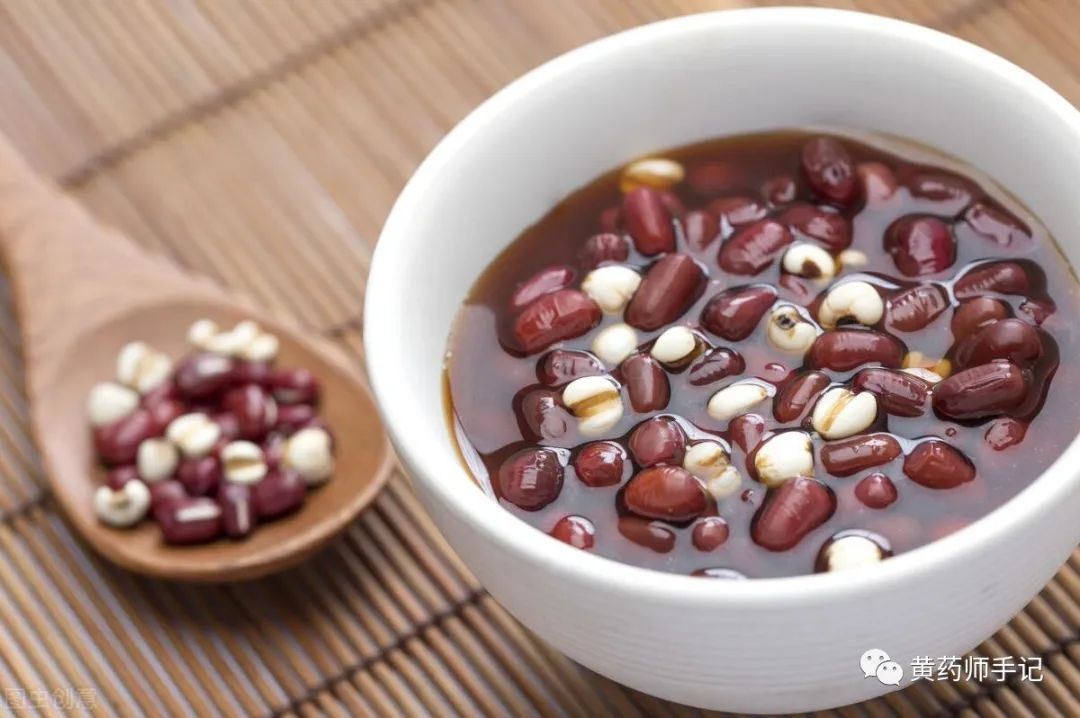
Coix and Adzuki Bean Porridge (Image source: Tuchong Creative/Today’s Headlines)2. Spleen Deficiency DiarrheaCoix seed is suitable for diarrhea caused by spleen deficiency with dampness, as mentioned earlier with Shen Ling Bai Zhu San, which can also be used for spleen deficiency diarrhea.For chronic spleen deficiency diarrhea, coix seed can be cooked with Shan Yao (Chinese yam), pan-fried Bai Zhu, Yun Ling (Poria), and glutinous rice to make porridge, known as Shan Yao Porridge, to strengthen the spleen and nourish the stomach.3. Joint Numbness and Pain (Bi Syndrome)Coix seed is also commonly used for numbness and pain in the tendons and joints. For example, in the book Lei Zheng Zhi Cai, Coix Seed Decoction is used with Du Huo (Angelica pubescens), Fang Feng (Siler), and Cang Zhu (Atractylodes) for severe joint pain that worsens in rainy weather, with fixed pain in the affected area and coldness in the waist and knees.For chronic rheumatic joint pain, coix seed can be cooked with japonica rice to make porridge, referred to in Shi Yi Xin Jing as Coix Seed Porridge.
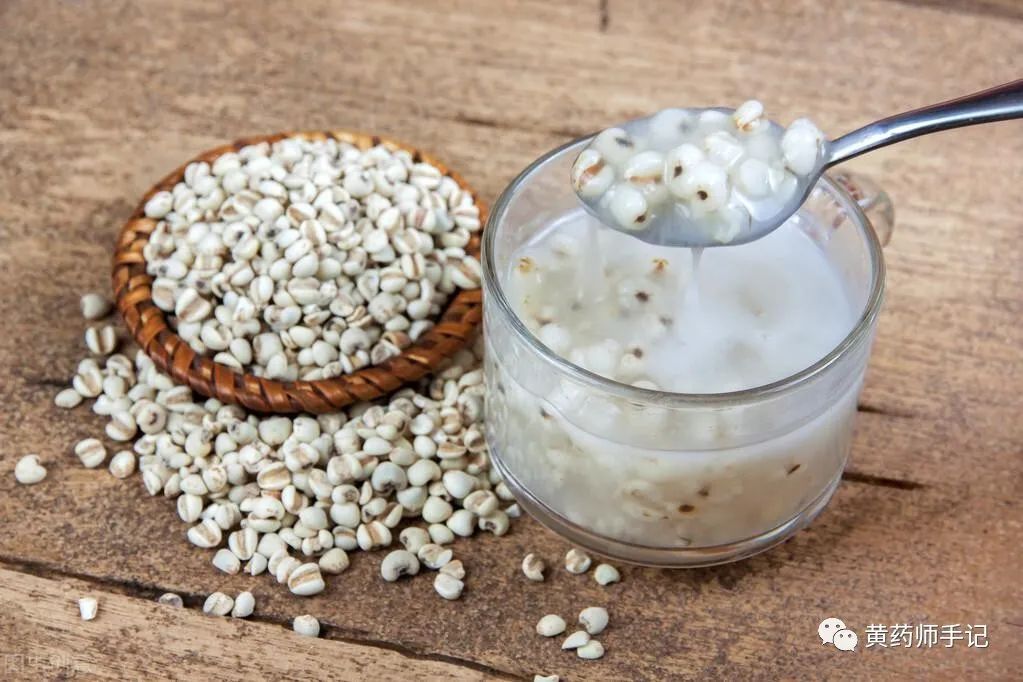
Coix Seed Porridge, this image does not include japonica rice (Image source: Tuchong Creative/Today’s Headlines)4. Dysuria (Urinary Tract Infection)In Yang’s Experience Formula, coix seed is used for heat dysuria with painful, burning urination and yellow urine, combined with Hua Shi (Talc), Jin Qian Cao (Lysimachia), and Che Qian Zi (Plantago) for treatment.It is commonly used in modern times for acute and chronic prostatitis, benign prostatic hyperplasia, acute and chronic pyelonephritis, cystitis, and urethritis, all of which are urinary tract infections.5. Lung Abscess and Intestinal Abscess (Purulent Infections of the Lungs and Intestines)The lungs and large intestine may seem unrelated, but in TCM, the lungs and large intestine are interrelated, and diseases of the lung meridian often correlate with those of the large intestine meridian.Coix seed clears heat from the lung metal and dispels dampness from the intestines and stomach, making it useful for lung abscess and intestinal abscess, as it has a purulent discharge effect and is often used in purulent infections.For example, the famous formula Wei Jing Tang combines coix seed with Wei Jing (Reed), Dong Gua Ren (Winter melon seed), and Tao Ren (Peach kernel) for cough with purulent sputum and chest pain due to lung infection (lung abscess).In Jin Gui Yao Lue, Fu Zi Yi Yi Bai Jiang San combines coix seed with Fu Zi (Aconite) and Bai Jiang Cao (Patrinia) for intestinal purulent infections (intestinal abscess). It is commonly used in modern differential treatment for recurrent appendicitis and ulcerative colitis.It is worth mentioning that modern extracts of coix seed are used for lung cancer and other tumors, showing good effects in alleviating pain, improving symptoms, and enhancing quality of life.
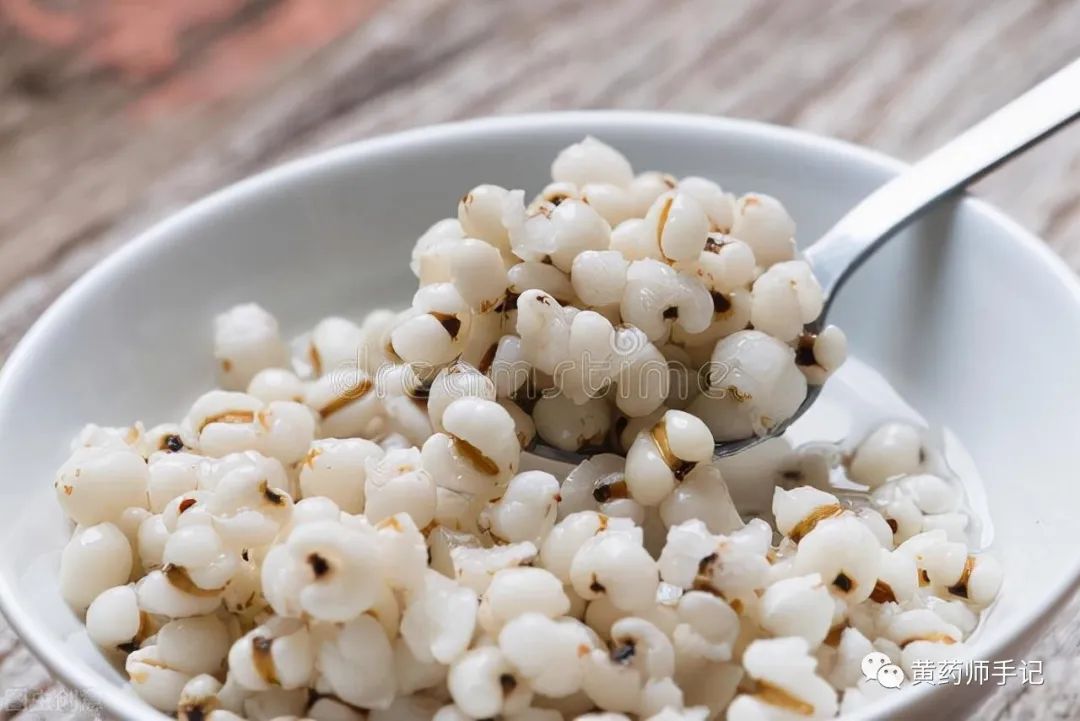
Coix seed (Image source: Tuchong Creative/Today’s Headlines)
2. Usage Precautions
1. Coix seed is a food-medicine dual-use herb, which has the advantage of having few side effects. However, when used as medicine, the dosage is usually larger, and simply eating a small amount or one meal is not effective, so clinical dosages are generally larger. If making porridge at home, it is necessary to use a larger quantity and even consume it regularly.2. Raw coix seed is slightly cold in nature, more suitable for conditions like athlete’s foot edema, urinary difficulties, damp bi joint pain and numbness, intestinal abscess, and lung abscess; while roasted coix seed is neutral in nature, enhancing its spleen-strengthening and diarrhea-stopping effects, and is more commonly used for diarrhea due to spleen deficiency with dampness.3. Caution is advised for those with spleen deficiency without dampness, constipation, and pregnant women.
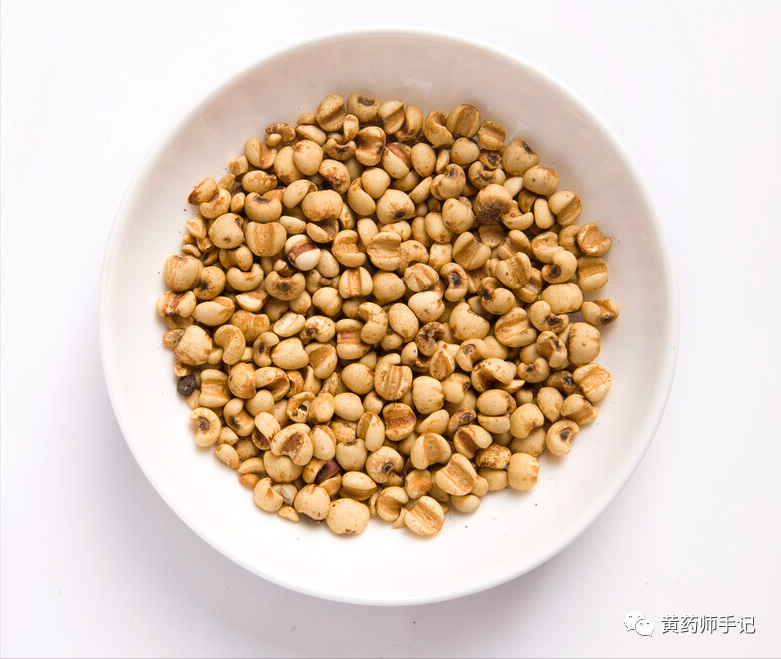
Roasted coix seed, the color of roasted coix seed turns yellow (Image from the internet, please delete if infringing)ReferencesShen Nong Ben Cao Jing, Lei Zheng Zhi Cai, Yang’s Experience Formula, Qian Jin Fang, Zhang Tingmo’s Clinical Chinese Medicine Lecture Notes, Chinese Clinical Chinese Medicine [Tumors, 2001, 21 (2):152].This article is original by Master Huang and may not be reproduced without permission. Please indicate the source as Master Huang’s notes.Master Huang updates the most concerning Chinese medicine, proprietary Chinese medicine, and health knowledge daily. The prescriptions and methods mentioned in the text are for learning and reference only; please use under the guidance of a physician.If you need medical treatment, please consult a professional doctor at a regular hospital for differential diagnosis and treatment.

